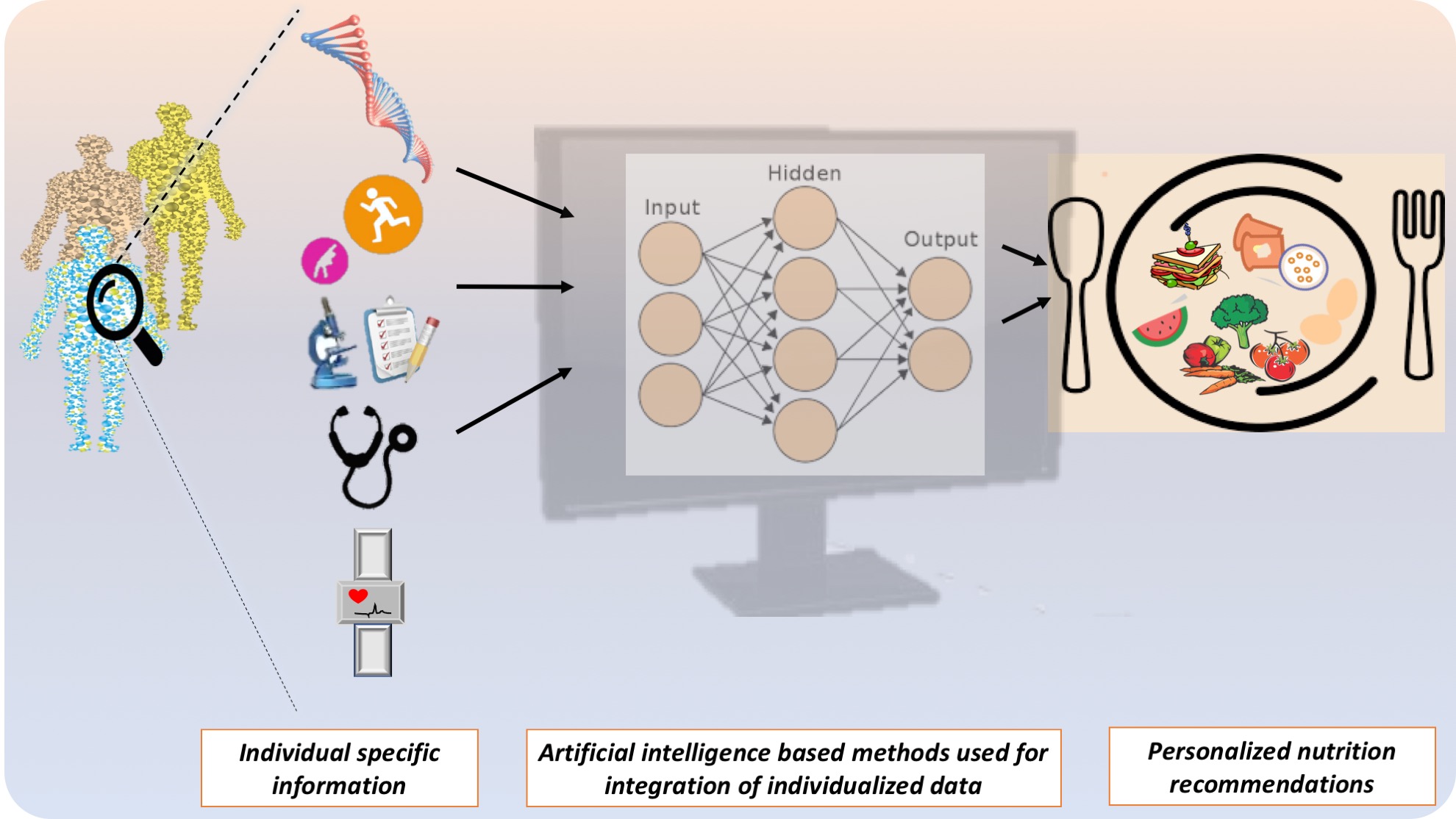NIMML Delineates the Path for Personalized Nutrition: Challenges and Solutions

The Nutritional Immunology and Molecular Medicine Laboratory (NIMML), a leading lab at the Biocomplexity Institute of Virginia Tech is applying artificial intelligence (AI) methods to personalized nutrition and health. These efforts are aligned with the Precision Medicine Initiative (PMI) which not only aids the researchers and physicians cure people, but also empowers individuals to monitor and take a more active role in their own health. As opposed to the PMI, personalized nutrition refers to tailored nutritional recommendations aimed at the promotion, maintenance of health and prevention against diseases. However, there are numerous challenges in the path of making personalized nutritional recommendations for the health well-being and disease prevention.
The “one-size-fits-all” template is based on generic suggestions regarding nutritional recommendations for improving an individual’s health are not helpful. There is a need to develop new personalized recommendations that are tailored towards each individual. However, making personalized nutrition recommendations for any individual while taking into account the inter-individual variability is a daunting task that requires building the necessary advanced computational infrastructure.
In a recent article published in Frontiers in Nutrition, NIMML discussed the major challenges in the path of making personalized nutritional recommendations. In particular, the article discusses how the advances in AI and machine learning (ML) can be used to overcome the challenges in the field. Integration of data-driven methods with large-scale medical records, real-time data collected through wearable and information on nutritional intake can facilitate the process. The article discusses the need for building a personalized nutrition food health infrastructure to integrate the data derived from multiple sources, the necessary data management, computational modeling, informatics, and real-time data analytics platforms that can enable the informed decisions by health practitioners.
“Identifying optimal personalized dietary regimens requires capturing the information at the personalized, individual level, including human diversity and inter-individual variation. The ability to integrate big data across complex information processing architectures using AI is revolutionizing personalized medicine.” Said Dr. Josep Bassaganya-Riera, the Director of NIMML. “The article outlines the major challenges in the path of making personalized nutrition recommendations and proposes tangible solutions. These include limitations due to: the reductionist approaches, insufficient data standardization and missing values in electronic health records. Many of these challenges can be overcome with advanced computational methods and AI to enable informed decisions by health practitioners, patients and and consumers alike.”
The NIMML is using AI algorithms to build personalized predictive models of drug combinations and unravel complex relationships between diet, gut microbiome and genetic lineup. The use of AI inspired ML methods leverages the volume and exponential growth of clinical data from electronic health records to translate clinical information into new unforeseen insights for safer, more effective and cost-efficient personalized healthcare.
“In this article, we present case studies that utilize the AI-based personalized nutrition infrastructure to make predictions regarding the personalized recommendations. Further, we emphasized the need for data standardization and training in personalized nutrition and health,” said Meghna Verma, a PhD student and researcher at NIMML.
Related press releases:
Applying Artificial Intelligence to Improve Drug Development
Artificial Intelligence: The Next Revolution in Healthcare and Precision Medicine
Artificial Intelligence: Implementing a Vision for Precision Medicine and Health
About NIMML
The NIMML Institute is a 501 (c) (3) non-profit public charity foundation focused on a transdisciplinary, team-science approach to precision medicine at the interface of immunology, inflammation, and metabolism. The NIMML Institute team has led numerous large-scale transdisciplinary projects and is dedicated to solving important societal problems by combining the expertise of immunologists, computational biologists, toxicologists, modelers, translational researchers, and molecular biologists. The Institute is headquartered in Blacksburg, VA. For more information, please visit www.nimml.org or contact pio@nimml.org.
